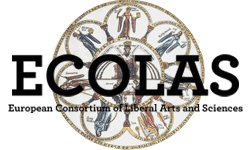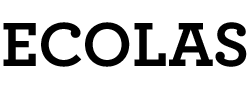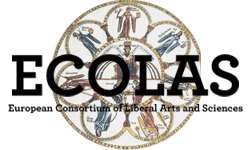What Is ECOLAS
General Description
European Consortium of Liberal Arts and Sciences (ECOLAS) is a non-governmental educational network that proposes to address the central issues surrounding the development of undergraduate (Bachelor degree) education for 21st century Europe within the context of the liberal arts and sciences tradition. Established by three partners, Samuel Abraham (Bratislava International School for Liberal Arts, Slovakia), Hans P.M. Adriaansens (founding Dean of University College Roosevelt, Netherlands), and Laurent Boetsch (President Emeritus, ECLA, Berlin) all of whom are experienced, senior leaders in higher education, the group is designed as the first European network to implement and promote undergraduate liberal arts and sciences education as an expression of the Bologna reforms for European Higher Education.
The Bologna Process has made the potential appeal for multiple appropriate models of learning within European undergraduate education among its most attractive characteristics. To date the reforms emanating from the Bologna accords have been primarily structural and the breakdown of the degree cycles into a tripartite division of BA, MA, and PhD has yet to address in a substantive way alternative divisions of degree content or specifically appropriate methodologies for the delivery of that content within the various levels. Increasingly employers in global enterprises express the need for university graduates with the very attitudes and abilities that characterize the objectives of liberal education that ECOLAS seeks to promote: 1) the capacity to understand the importance of multiple perspectives in examining and solving a problem; 2) the necessary cultural breadth of learning vital to trans-national relationships; 3) acute skills in critical analysis and synthesis; 4) the ability to articulate a position accurately and persuasively; and 5) a passion for life-long learning.
A key to the ECOLAS approach is the consideration of the importance of developing the quality of the undergraduate (bachelor) cycle as both a stand-alone preparation for the workplace and as fundamental preparation for advanced degree work. By promoting the liberal arts and sciences tradition, ECOLAS seeks to cultivate and nurture programs which, in addition to providing the specific discipline-based knowledge necessary for subsequent specialization, also allow students to acquire the leadership skills that are vital not only to the global workplace but to the exercise of democratic civic responsibilities within an increasingly diverse European Union.
As a consortium of educational experts, ECOLAS serves as both a legitimate model and as an organization in the service of other European initiatives aimed at preparing undergraduate students in the critical, analytical and collaborative skills that traditionally distinguish this form of undergraduate education. In meeting its goal of contributing to the improvement of undergraduate education in Europe, ECOLAS’ principal objectives are:
-
to assist in and to encourage the development of liberal arts and sciences education throughout the EU,
-
to help establish specific criteria with which to measure liberal arts initiatives, and
-
to stimulate the development of ways and means to evaluate undergraduate liberal arts programmes through a formal accrediting process.
ECOLAS aims to serve as the clearing house for new initiatives in liberal learning, new ideas related to its objectives, and new relationships to ensure its advance within the European Community.




